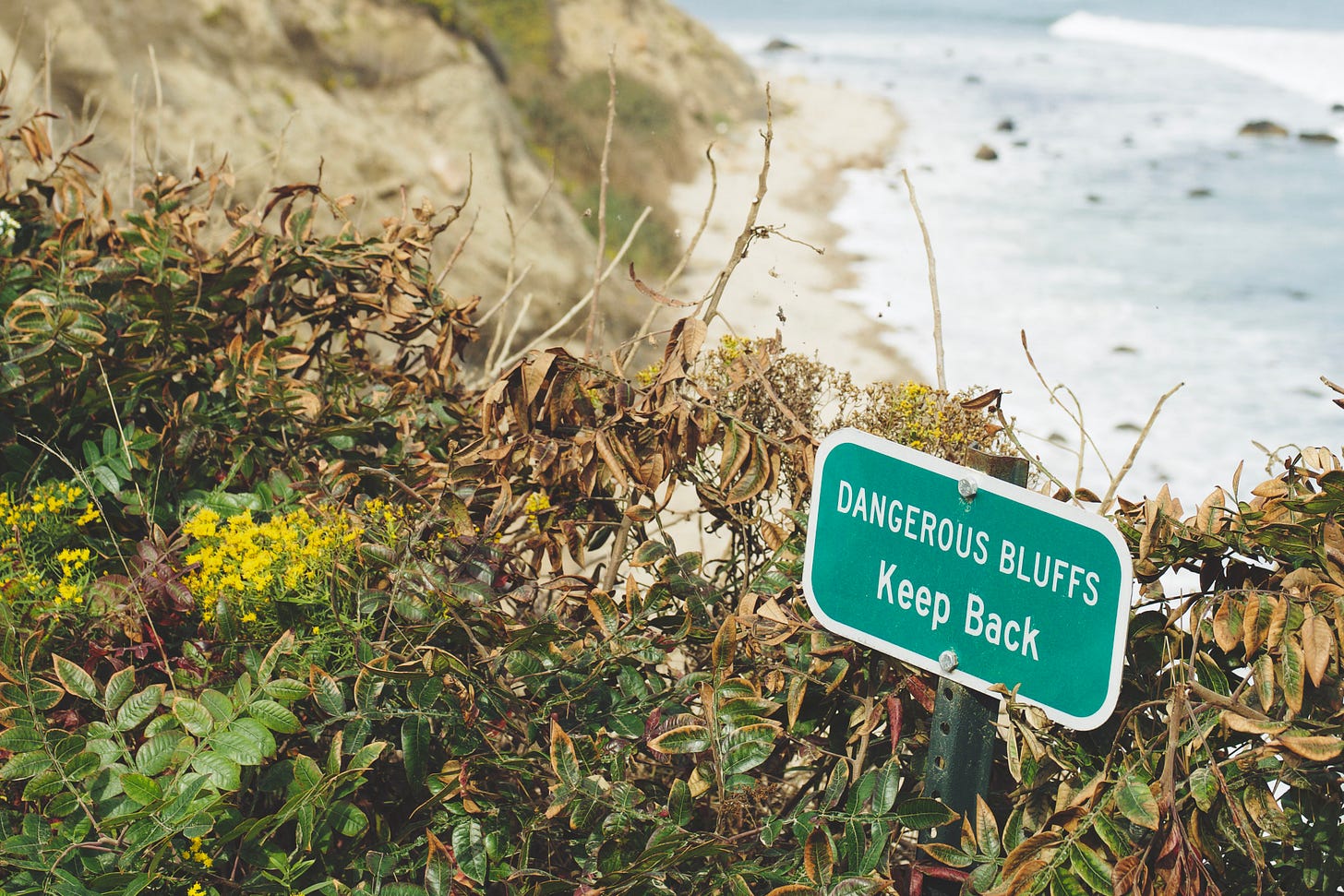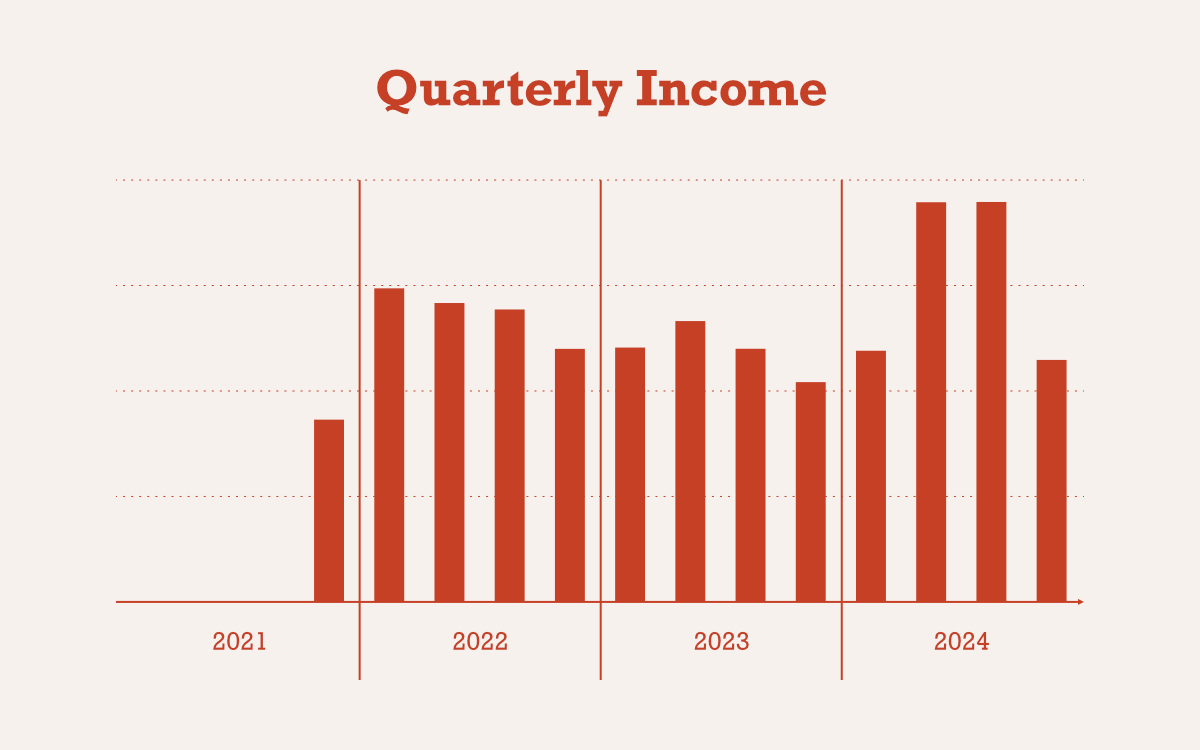Year 3 as an indie consultant: Asking some destabilizing questions
In the tradition established by others, my reflections on the past year and my intentions for the next one.
A great trip forces you to question some of your most deeply held assumptions about how life can be. Things you took for granted at home are suddenly revealed to be strange, delightful, horrific, or at least not inevitable.
I got into indie consulting as a form of travel. It allows me to get out and see the world. It allows me to live and work among different cultures and tribes. It allows me to face unexpected questions about how I work and how else it could be.
The specific type of consulting I do allows me to live like a local. I’m not some tourist passing through on a long weekend. Instead I embed into leadership teams for months. I am able to earn people’s trust and be welcomed into their homes, so to speak. I join their exec team meetings, their holiday parties, their offsites; I learn their local customs and their deep histories and their mortal enemies and their patron saints; I learn their superstitions and their rituals and their taboos. I try to feel life as it’s really felt in their little corner of the world.
Of course, I can live like a local, but I am not one. I am unavoidably an outsider, even with clients I’ve worked with for years. This is a big part of my value. Being an outsider helps me appreciate what’s unique, what’s special, and what’s strange about any one place and its people. (Let’s not get too grand about this, though: I’m still very much a type, an insider of the laptop class, with most of the blind spots and shortcomings that implies.) I love being able to step back and ask the locals a destabilizing question or two.
Along those lines, it’s probably time I ask myself a few destabilizing questions. This year was suspiciously comfortable and the end of year is as good a time as any to welcome a little discomfort.
By most objective measures, Year 3 was an unmitigated success. I worked with founders I like and respect. I had diverse work (this year’s industries: beauty, personal injury, hospitality, ecommerce, B2B productivity, and Broadway theater). I did good work and can point to the results. I earned more than ever. And I did all of this while working four days a week or less without exception; I will have worked roughly the equivalent of 175 days this year.
I can’t help but feel a certain unease. I’ve reached the point in the movie where the protagonist pauses in a moonlit clearing and mutters to himself, “It’s quiet…maybe a little too quiet.” Something’s lurking out there.
So here are a few unanswered questions that have been rustling in the underbrush, audible to me in the eerie quiet:
When should I run a deficit?
In the 15 years since college, I’ve never had a year where I spent more than I earned. I could if I wanted to; my wife and I have plenty of runway. So why haven’t I? How should I even think about the idea? Is an extended deficit period an investment? A risk? A bet? A sabbatical? A reboot? A founding moment? (My one attempt to do this was a year of travel slated to start on March 25th, 2020 — whoops.)
Am I becoming more myself?
So many of my self-employed friends are delightfully themselves. Selection effects are at play, of course: Even before they became self-employed, they shared a suspicion of convention, a trust in themselves, and a belief that things tend to work out.
But the experience of self-employment tends to have a wonderful weirding effect. It requires you to get more comfortable with yourself, often alone. Less time in structured environments means some of the regulators come off. More free time means hobbies and intellectual interests can bloom. Simply confronting that free time requires filling it with what makes you happy, and a more unconstrained search for those things produces surprising and very personal results. (For me it has been movies and linocut printmaking.)
Am I performing myself?
It’s a cliche for self-employed architects and consultants and psychiatrists to wear wacky glasses. Same for the talking heads on ESPN and their crazy suits.
This performative individualism is a perverse outgrowth of customer-dependent self-employment: We need to be remembered. We need to avoid commodification. Being remembered is how we get business, and avoiding commodification is how we charge more. The silly glasses come off as forced because often they are being used for a business purpose rather than as true self-expression. This uncanny value is a real turn off; I want to avoid it.
Am I becoming conspiratorial?
We’re living through a golden age of conspiratorial thinking. Most of my friends are pretty conventional, in part because most of them are part of “the establishment.” I like to ask them, “What’s your most conspiratorial belief?” and they often struggle to name even one. But this isn’t a problem for my self-employed friends — the conspiracies just start flowing. (To be clear, a few of these conspiracies are true.)
Some of this is selection effects: The self-employed are more likely to be rugged individualists, more likely to distrust explanations that sound like “that’s just the way things are done.”
But I’ve come to appreciate how much of it is causal, too. Being self-employed exposes you more directly to the capricious nature of the world. Rogue waves are out there all the time, rolling across the sea, with no clear cause. It’s natural to cope with this vulnerability by developing a personalized pagan religion, full of characters and demigods and natural laws that help explain the unexplainable. Without inheriting the institutionalized religion of an employer, the self-employed have to weave their own story. Each story is esoteric and inconsistent and self-serving and, at least a little bit, conspiratorial.
I find these stories charming most of the time. But a few friends have fallen off the deep end. (Of course this isn’t a fate reserved for the self-employed.)
How much should I pay attention to what others are doing?
Probably the central challenge I’ve faced in my work is positioning. I mostly define myself by what I’m not: Not a coach, not a fractional COO, not a freelancer. When that works it works really well, because it selects for work that is hard to categorize, which I find more interesting. But it restricts deal flow and probably only serves my ego. This is true of learning from what others are doing more generally. I should spend more time talking brass tacks with other consultants and fractional folks. This is a boring observation but an important one.
What would a hard reset look like?
My two clients today are the same two clients I started with over three years ago. The work has changed dramatically over that time, and I’ve added and dropped a dozen other clients in between, but that stability also represents some kind of local maximum. What if I started over? What territory would I choose to explore that doesn’t feel available to me today? Is that new territory closer to some global maximum for me?
How can I practice optimism?
I love working with founders because their optimism is infectious. Often optimism reads as naive. But I’ve come to appreciate how optimism is a strategy. It’s a purposeful choice to think about the world in a certain way.
Optimism encourages getting started; momentum does the rest. Belief produces action; action produces more action. (It also can produce visible mistakes, but the goal isn’t to avoid mistakes, it’s to find what works.)
A particularly clear articulation of this, from Francis Ford Coppola’s wife Eleanor in Hearts of Darkness: “His philosophy was always, and remains to this date is, ‘I'm gonna go and make the movie. And if everybody knows I'm going to make it, it will fall into place. And if I don't go forward as if I'm making it and start making it, nothing will happen.’”
Or as Phil Knight put it more succinctly: “Just do it.”
Closing recommendations
My favorite movie of the past year that you probably haven’t seen is Flow. It’s a Latvian animated movie with no dialogue about a cat that gets caught in a flood. I realize that may sound like a tough sell but it is beautiful and thrilling and really captures the mystery of just surviving. The cat would make a great freelancer.
This article on a wildly successful Division II basketball coach, who sounds like Bill Belichick if you dialed him up to 11 on the Curmudgeon Scale, is full of useful lessons.






These are some lovely questions 🙏🏻
Appreciate your reflections! For me it’s really been an embrace of the weird and never quite knowing where I am in my own conspiratorial story